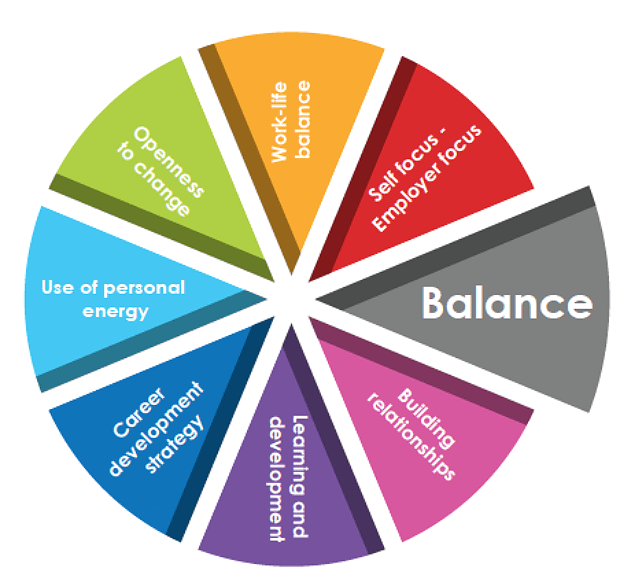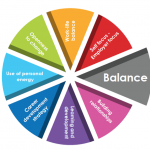

COVID has thrown us off balance. We have had to adapt fast, as many of us have been forced into survival mode. Health, finances, infrastructure have all been at best under threat and, at worst, decimated.
We may have been furloughed and are wondering about whether we will be taken back full or part-time. Our future plans ( eg change jobs, retirement, exotic holiday) may well have been trashed. We feel knocked back -in shock, scared, anxious and immobilised. We even start worrying about small things we can do nothing about.
Crisis can be a good time for re-evaluation. Possibly, the way you viewed your job or career before Lockdown has been confirmed. If you were questioning your commitment to your work, now you think may be a good time to change. But this is hard to do when you and much of our economy are in crisis.
As Steven Covey says in his book The Seven Habits of Highly Effective People (Schuster,2004), focus on what you can control, not what you can’t. In career terms, now may be an excellent time to consider the way you manage you career, rather than changing it. Here are five guidelines to get you thinking what you could be doing differently:
1 Build relationships
Why is this important?
Good relationships increase opportunities for current or future collaboration. Building the number of people in your network means you have more ‘go-to’ people. It also widens your own visibility, increases your knowledge or work and development opportunities and enables you to understand a wider range of needs in your organisation, industry.
Building relationships takes time, and needs to be two way to be mutually satisfying and sustainable. Now may be a good time to re-connect with dormant contacts – whether that is a specific approach via Linkedin or an invitation for a virtual coffee.
Some ideas for action.
Try ticking the ones you would take action on at some point, and another tick against those you intend to action now.
- Offer to share your knowledge or experience with someone (or work on a new project together)
- Connect with someone you don’t usually work with (in or outside your organisation)
- Complete a Stakeholder Map – like a Mind Map of your key contacts
- Let people know of an event or piece of information that you think will be of interest or value to them
2 Be open to change
Why is this important?
We have had to adapt to the greatest threat to our survival and well being since World War 2 . At work, demonstrating your agility right now could be critical to the viability of your organisation. It will make you more able and confident to adjust to future changes, and build your reputation as a ‘can do’ person.
Some ideas for action.
Try ticking the ones you would take action on at some point, and another tick against those you intend to action now.
- Be open to requests for help outside your usual areas of responsibility
- Note down what enabled you to make successful changes in the past
- Be proactive! Find out about likely changes coming up in your organisation or industry
- Ask about opportunities to be involved in new projects/work shadowing
- Volunteer
- Look for the benefits of any new ways of working ( eg more remote working, socially distancing, wearing a mask)
- Talk to your manager about ways you can contribute
3 Career Development Strategy
Why is this important?
Having some compass for direction sharpens your ability to define and convey your personal brand. Clients I see often rue the fact they have not taken sufficient care of building their reputation or personal brand. It can inform your networking and development goals, and impact your own energy and motivation to develop and grow.
Some ideas for action.
Try ticking the ones you would take action on at some point, and another tick against those you intend to action now.
- Identify mentors and others who can help by giving support but also feedback
- Clarify the areas of your personal brand you want to be better known for
- Identify and learn from others who manage their careers well
- Have career conversations with different stakeholders
- Identify opportunities for development – in a new or related area (internally or externally)
- Form your career vision (but use as a focus for energy, not a blueprint).
4 Use of Personal Energy
Why is this important?
More than ever, it is critical to look after yourself. This means knowing yourself, using your time well, playing to your strengths and managing your anxieties, as far as possible. Doing this can help you decide about future work responsibilities, ensure you get enough ‘down time’ and make you feel more in control.
Some ideas for action.
Try ticking the ones you would take action on at some point, and another tick against those you intend to action now.
- Write down the strengths you have which you want use more
- Take at least five minutes in every hour to ‘chill’, relax or reflect
- Collaborate with people who make you feel good
- Notice what activities give you energy, and do more of them
- Find one or more people with whom you can unwind.
One thing I have noticed and learned during Lockdown is that we -as a society- are inter-dependant. The same is true of groups within society. We depend on each other, whatever our role, to get important things done. Returning to work after the Lockdown is not just about looking after ourselves. It will need us to show empathy and be willing to step in when needed , whether that be for new work projects, or realising that a colleague is working less because he must look after his young children. Maybe your employer is having to solve new problems in response to coronavirus, and you can give your time or skill to help out. The feeling this gives you, stretching your skills, reaching out to help, can contribute not just to the furtherance of your own career goals but a sense of being valuable in our communal quest to emerge from the Lockdown perhaps more ‘together’ than we were before.

